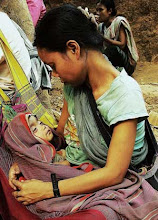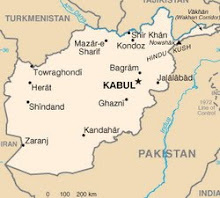 DUBLIN-Early on the morning of October 29, 2005, extremists waylaid four teenage girls in Poso, Indonesia. They beheaded Theresia Morangke, Alfita Poliwo and Yarni Sambue, while Noviana Malewa, the only survivor, sustained serious injuries and still bears the scar of a deep machete wound to her face and neck.The incident was one of the most shocking in a long series of brutal attacks by Muslim extremists against Christians from 2002 to 2005 in the province of Central Sulawesi.Extremists claimed the attacks were carried out in retaliation for bloody massacres against Muslim communities during violent conflict in the region from 1998 to 2002.The beheadings sparked outrage throughout Indonesia and led to a police manhunt resulting in the arrest of several of the main perpetrators. Some of these men – including Slamet Rajarjo, alias Hasanuddin – gave testimony that led to more arrests and the disbanding of Jemaah Islamiyah (JI) terrorist cells operating in the districts of Palu, Poso and Poso Pesisir.Following the arrests there are grounds for “cautious optimism,” according to a January report from the International Crisis Group (ICG), as Christian and Muslim communities, aided by government initiatives, work towards reconciliation. The Rev. Rinaldy Damanik, a key peace activist during the conflict, said progress has been made but there is still much work to be done in breaking down barriers of hatred and mistrust between the two communities.“It’s true that the situation has improved, in the sense that we’ve had no murders or mysterious shootings in the past year,” Damanik told Compass. “But I’m more concerned about the new community policing system. There is now a police post in every village, with seven to eight police officers. If we only have security when they are present, it’s not genuine security. A sense of security must come from within the community.”According to Damanik, Christians and Muslims are once again visiting each other, taking part in society events or wedding celebrations, although the change is slow and gradual. “I’ve been surprised to find that some Christian children, even those born after the conflict ended, associate ‘bad people’ with ‘Muslims,’” he said. “Mostly though, Christians have gotten wiser; they can tell who is a terrorist and who is not. After all, not all Muslims are extremists.”
DUBLIN-Early on the morning of October 29, 2005, extremists waylaid four teenage girls in Poso, Indonesia. They beheaded Theresia Morangke, Alfita Poliwo and Yarni Sambue, while Noviana Malewa, the only survivor, sustained serious injuries and still bears the scar of a deep machete wound to her face and neck.The incident was one of the most shocking in a long series of brutal attacks by Muslim extremists against Christians from 2002 to 2005 in the province of Central Sulawesi.Extremists claimed the attacks were carried out in retaliation for bloody massacres against Muslim communities during violent conflict in the region from 1998 to 2002.The beheadings sparked outrage throughout Indonesia and led to a police manhunt resulting in the arrest of several of the main perpetrators. Some of these men – including Slamet Rajarjo, alias Hasanuddin – gave testimony that led to more arrests and the disbanding of Jemaah Islamiyah (JI) terrorist cells operating in the districts of Palu, Poso and Poso Pesisir.Following the arrests there are grounds for “cautious optimism,” according to a January report from the International Crisis Group (ICG), as Christian and Muslim communities, aided by government initiatives, work towards reconciliation. The Rev. Rinaldy Damanik, a key peace activist during the conflict, said progress has been made but there is still much work to be done in breaking down barriers of hatred and mistrust between the two communities.“It’s true that the situation has improved, in the sense that we’ve had no murders or mysterious shootings in the past year,” Damanik told Compass. “But I’m more concerned about the new community policing system. There is now a police post in every village, with seven to eight police officers. If we only have security when they are present, it’s not genuine security. A sense of security must come from within the community.”According to Damanik, Christians and Muslims are once again visiting each other, taking part in society events or wedding celebrations, although the change is slow and gradual. “I’ve been surprised to find that some Christian children, even those born after the conflict ended, associate ‘bad people’ with ‘Muslims,’” he said. “Mostly though, Christians have gotten wiser; they can tell who is a terrorist and who is not. After all, not all Muslims are extremists.”‘Cautious Optimism’
The ICG report warned of ongoing JI activity in Poso, fed by simmering resentments against police, high unemployment and a lack of vocational training for young Muslims, who were identified as potential recruits.ICG recommended setting in place a number of vocational training programs and livelihood initiatives to provide skills and employment for men and women who might otherwise be drawn to terrorism.ICG described “grounds for cautious optimism” due to increased reconciliation efforts, including the establishment of several vocational training programs in Poso. At first the programs were only available to Muslim “potentials.” But as initiatives got underway, Syarifudin Odjobolo, the director of a local NGO (Non-Governmental Organization), insisted that the same training be offered to Christians.When Christians proposed a number of livelihood projects, Odjobolo steered one group away from a pig-raising project – offensive to Muslims – and suggested fish farming instead. This project dovetailed perfectly with a Muslim fish-trading initiative proposed by former Poso terrorist Andi Bocor, who turned himself in to police in November 2006.The government also made individual cash grants of 10 million rupiah (US$1,084) available to 125 Muslims who had served time in prison for violence during the conflict. In November 2007 Christian ex-prisoners demanded equal treatment, and in January 85 Christians were given 2.25 million rupiah (US$244) each, the ICG noted.The central government also provided 17 billion rupiah (approximately US$1.8 million) to build a Muslim university in Poso Pesisir, near the site of prominent Muslim leader Haji Adnan Arsal’s al-Amanah boys’ school, due to open in April.Authorities initially approached Arsal and asked him to shut down his own schools and join the university board. Following loud protests from moderate Muslims, however, this idea was dropped. Arsal responded by merging the boys’ and girls’ schools into a single legal entity, the Pesantren Amanatul Ummah, which currently caters to about 60 students.The central government also provided unspecified funding for the extension of a Protestant theological school in Tentena. The new Christian University of Tentena is still under construction, and only 20 percent of the necessary staff had been recruited.
Long Road to Peace
Long Road to Peace
ICG described Poso as being “quieter and safer” since the January 2007 raids. Police have since identified the perpetrators of all sectarian crimes committed since a 2001 Malino peace accord was signed. Most have been arrested, tried and convicted. ICG believes JI’s Poso subdivision has disbanded, at least temporarily. Damanik thinks otherwise. “I’m not convinced,” he told Compass. “It’s true that, as an organization, they are weaker. But their spirit lingers, and this spirit can easily emerge again. For example, last month a JI prisoner died in Palu prison. When his body arrived in Poso, hundreds of Muslims walked down the road escorting the coffin.”Asked how remaining grievances could be addressed, Damanik said memories of the conflict would always be there. “They are part of history, impossible for us to forget,” he said. “People in Poso rarely talk about their grievances in public. But when I talk to people in private, I can still see sadness in them, even glimpses of resentment. We need to look to the future.”The Poso conflict was unique, Damanik added. “Unlike Ambon, Papua or even Aceh, only a few alleged perpetrators on one side of the conflict have been sentenced to death – that is, [Catholics Fabianus] Tibo, [Dominggus] da Silva and [Marinus] Riwu. If this is not addressed, it’s a time bomb that could explode at any time.”Regarding the Muslim terrorist trials, Damanik said justice was not served at all. “They received a maximum of 20 years in jail. This is a sharp contrast with the Tibo case,” he said. “Even I struggle with this. I resigned from my position as head of the Central Sulawesi Protestant Church after the executions. We can only learn not to repeat the same mistakes in the future. The government has sponsored a Muslim university and a Christian university in Muslim and Christian districts. Why label everything under a certain religion? Aren’t we asking for trouble?”The Poso conflict was not originally sectarian, Damanik explained, but because of the religious affiliations of those involved it eventually came to be seen as a religious conflict. As for the way ahead, “We need to emphasize people’s freedom to choose and follow their own religion,” he concluded. “If we could all respect one another’s freedom of religion, for example being sensitive when delivering speeches or sermons, it would defuse many conflicts.”
Claims of One-Sided Justice
Claims of One-Sided Justice
In 2001, police sentenced Tibo, da Silva and Riwu for inciting Christian militias to murder Muslims in Poso – including those at the Walisongo school – in May and June 2000. Protests from local Christians and international human rights organizations delayed the executions for several years. Christians asked why none of the few Muslim perpetrators arrested and sentenced for their part in the violence were awarded the death sentence, while Muslims demanded that police identify and punish 16 other men allegedly involved in the massacres.Authorities finally executed Tibo, da Silva and Riwu on September 22, 2006, sparking riots in the streets. Christian villagers seized and murdered two Muslim fish traders, and on September 30 a bomb exploded outside Kawua church in Poso. Six more bombings followed during Ramadan.On October 16, extremists shot and killed the Rev. Irianto Kongkoli, head of the Central Sulawesi Protestant Church, who had campaigned for a stay of execution for Tibo, da Silva and Riwu.Later investigations revealed that Kongkoli was the initial target of a shooting at Effatah Church in Palu in July 2004. In that incident, the Rev. Susianty Tinulele, invited to replace Kongkoli as speaker at the last minute, was killed instantly. Several teenagers in the church were also injured.
Crackdown on Terror
Crackdown on Terror
To prevent further uproar, the Indonesian government sent in troops and police reinforcements and began an intensive manhunt that resulted in the May 2005 arrests of several of the main perpetrators, including Hasanuddin, Lilik Purnomo (alias Arman or Haris) and Irwanto Irano. Purnomo (Haris) immediately confessed his involvement in several key attacks against Christians, including the schoolgirl beheadings, the shooting of Tinulele, and the shooting of Ferry Silalahi, an attorney who defended Damanik when he was charged with alleged illegal weapons possession. (See Compass Direct News, “Rinaldy Damanik to be released in November,” September 29, 2004.)As interrogations continued, it became evident that Tanah Runtuh was the hub of operations for many attacks against Christians. Police soon formed a wanted list of 29 men, most of whom were JI members.Police tried for several fruitless months to convince men on the wanted list to surrender, offering generous incentives such as reduced sentences. When that failed they carried out two violent raids on Tanah Runtuh on January 11 and 22, 2007. The raids resulted in 13 deaths, enraging the Muslim community, who responded by killing a policeman. More than 20 men were arrested on January 22 – but only two were on the wanted list. Others escaped into the jungles of Sulawesi. Police however seized an extensive weapons arsenal from homes in Tanah Runtuh, ICG reported in late January 2007.
Disputes Exploited by TerroristsCentral Sulawesi burst into figurative flame in 1998 following land disputes between Christian and Muslim communities. An influx of Muslims escaping conflict in the neighboring Maluku islands, or arriving from Java to join the conflict, meant Central Sulawesi became a fertile recruiting ground for radical groups such as JI and Mujahidin KOMPAK, renamed Mujahidin Kayamanya in 2004.One of the bloodiest incidents in the Central Sulawesi conflict occurred in 2000, when Christians attacked the Walisongo Muslim boarding school in Poso, killing 70 people – both school children and adults. Arsal, the prominent Muslim leader, established two schools to cater to the surviving students – the Ulil Albab school for girls in a housing estate named Tanah Runtuh, southwest of Poso city, and the al-Amanah school for boys about nine kilometers away in the town of Landangan.After the massacre, JI approached Arsal and offered to work with him. In June 2000, JI began sending experienced trainers – including Afghanistan veterans – to train Poso fighters in a jungle camp.After the Malino peace accords were signed in December 2001, with Arsal and Damanik both acting as signatories, JI took 10 trainees and formed a special operations unit to continue their work in Poso, according to ICG.The directors of JI saw Central Sulawesi as a potential source of funding and recruits, especially since key issues from the earlier conflict remained unresolved.As police investigations later showed, JI members taught students in both of Arsal’s schools, while Tanah Runtuh became a storage depot and center of operations for the JI division based in Poso.JI members befriended disaffected youth in local mosques, inviting them to study classes and eventually offering military training to the most promising students. Some of these students were sent to train alongside similar organizations in the Southern Philippines before returning to join JI wakalahs or subdivisions in Poso and Palu.The Poso subdivision, under the direction of Hasanuddin, was responsible for selecting the four schoolgirls of Poso as a “gift” to celebrate Idul Fitri – a day of dedication to Allah at the end of Ramadan, the annual Muslim month of prayer and fasting, generally held in October.
Disputes Exploited by TerroristsCentral Sulawesi burst into figurative flame in 1998 following land disputes between Christian and Muslim communities. An influx of Muslims escaping conflict in the neighboring Maluku islands, or arriving from Java to join the conflict, meant Central Sulawesi became a fertile recruiting ground for radical groups such as JI and Mujahidin KOMPAK, renamed Mujahidin Kayamanya in 2004.One of the bloodiest incidents in the Central Sulawesi conflict occurred in 2000, when Christians attacked the Walisongo Muslim boarding school in Poso, killing 70 people – both school children and adults. Arsal, the prominent Muslim leader, established two schools to cater to the surviving students – the Ulil Albab school for girls in a housing estate named Tanah Runtuh, southwest of Poso city, and the al-Amanah school for boys about nine kilometers away in the town of Landangan.After the massacre, JI approached Arsal and offered to work with him. In June 2000, JI began sending experienced trainers – including Afghanistan veterans – to train Poso fighters in a jungle camp.After the Malino peace accords were signed in December 2001, with Arsal and Damanik both acting as signatories, JI took 10 trainees and formed a special operations unit to continue their work in Poso, according to ICG.The directors of JI saw Central Sulawesi as a potential source of funding and recruits, especially since key issues from the earlier conflict remained unresolved.As police investigations later showed, JI members taught students in both of Arsal’s schools, while Tanah Runtuh became a storage depot and center of operations for the JI division based in Poso.JI members befriended disaffected youth in local mosques, inviting them to study classes and eventually offering military training to the most promising students. Some of these students were sent to train alongside similar organizations in the Southern Philippines before returning to join JI wakalahs or subdivisions in Poso and Palu.The Poso subdivision, under the direction of Hasanuddin, was responsible for selecting the four schoolgirls of Poso as a “gift” to celebrate Idul Fitri – a day of dedication to Allah at the end of Ramadan, the annual Muslim month of prayer and fasting, generally held in October.
As in the days of Noah....

























.bmp)
No comments:
Post a Comment